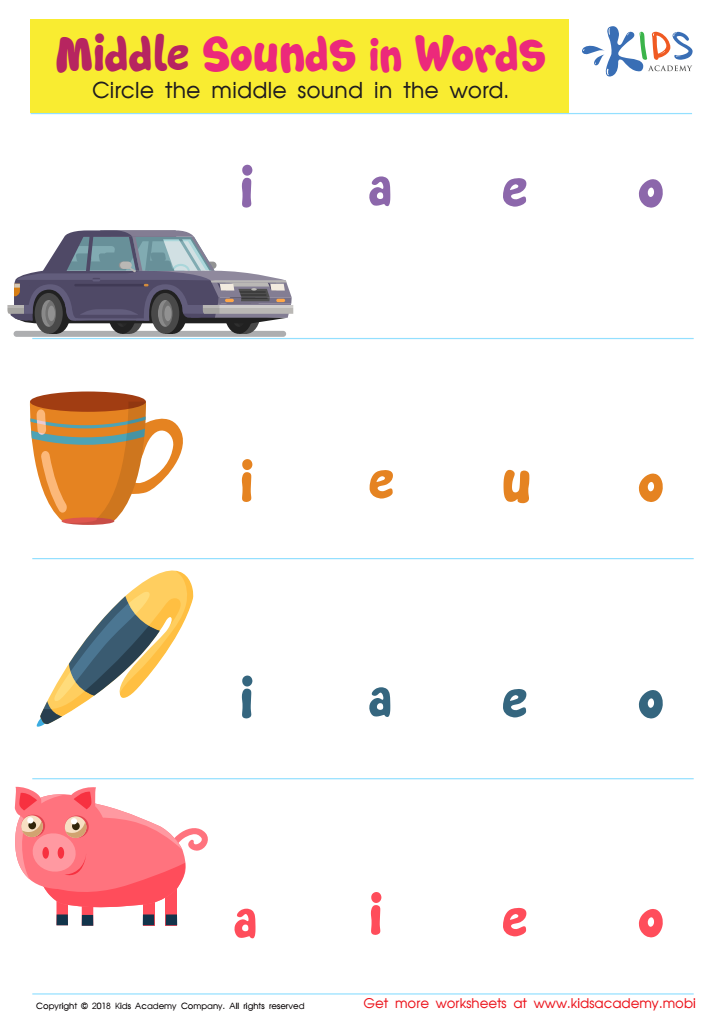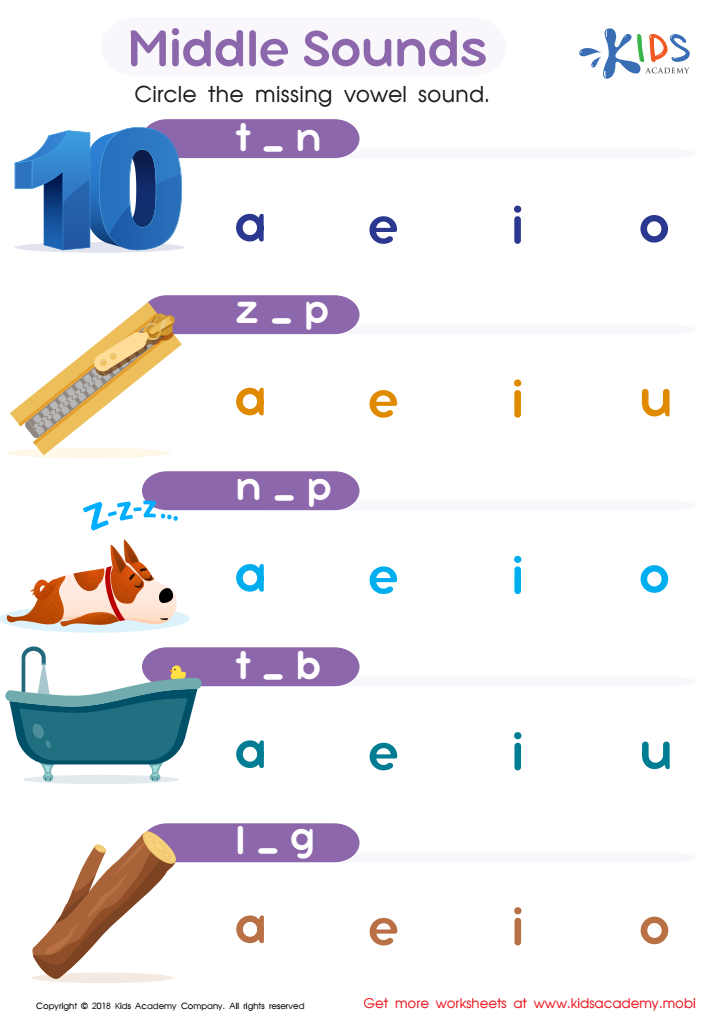Middle Sounds Worksheets for Ages 3-9
4 filtered results
-
From - To
Enhance your child's phonics skills with our engaging Middle Sounds Worksheets for ages 3-9! These worksheets are designed to help young learners identify and practice middle sounds in words, a crucial step in their reading and language development. Our colorful, easy-to-follow activities promote recognition of phonetic patterns and improve sound categorization, making learning enjoyable. Each worksheet targets essential skills and provides varied exercises to maintain interest and motivation. With a perfect blend of fun and educational value, our resources support early literacy while building a strong foundation for future reading success. Explore our collection and nurture your child's love for learning today!


Middle Sounds in Words Worksheet


Middle Sounds Worksheet


Phonics and Word Recognition: Assessment 1 Worksheet


Phonics and Word Recognition: Assessment 1 ELA Worksheet
Middle sounds, often referred to as medial sounds, are essential for early literacy development in children aged 3-9. Understanding and recognizing middle sounds not only enhances phonemic awareness but also serves as a foundational skill for reading and writing. When children learn to identify the sounds located between the first and last letters of words, they develop a more comprehensive understanding of how language operates.
Parents and teachers should care about middle sounds because they play a crucial role in sound segmentation and blending, skills that facilitate word recognition. By focusing on these sounds, children become better equipped to decode unfamiliar words, support spelling capabilities, and enhance vocabulary development. Engaging children in activities that highlight middle sounds, such as rhyming games or phonetic matching, makes learning fun and interactive.
Additionally, early mastery of middle sounds can mitigate future literacy challenges. Children who confidently navigate the complexities of phonics are more likely to excel in reading comprehension and writing fluency as they progress in their educational journey. Overall, emphasizing middle sounds in early education fosters important skills that lay the groundwork for lifelong literacy success, making it a priority for both parents and educators.
 Assign to My Students
Assign to My Students












